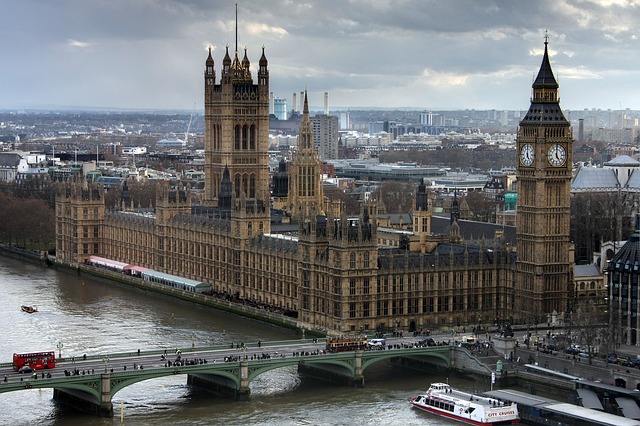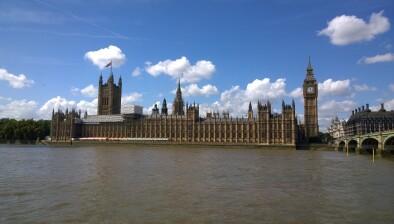Autumn Statement: Local Housing Allowance uprating just a ‘short-term measure’

Housing benefit is to be uprated for the first time in three years following yesterday’s Autumn Statement but concerns have been raised that the move is not enough to address homelessness in Scotland.
Chancellor Jeremey Hunt announced plans to reset the rate of Local Housing Allowance (LHA) so that it will cover the cheapest 30% of properties.
This, he said, will give 1.6 million households an average of £800 of support next year.
CIH Scotland, which published research last week that recommended the increase, said the move will not eradicate previous cuts to the LHA rate. Since the UK Government introduced a freeze on housing benefit in 2020, the affordability of properties has plummeted as rental costs have hit record levels.
Policy and practice manager Ashley Campbell said: “We are pleased that the Chancellor has announced that the UK Government will be reinstating Local Housing Allowance to the 30th percentile after being frozen since 2020. This aligns with the recommendations of research we published last week in partnership with Fife Council, and will help to increase housing choices for low-income households in Scotland and across the UK.
“However, this short-term measure is just one aspect of the support needed to address homelessness in Scotland. LHA has often been undermined by the UK Government, first being cut and then repeatedly frozen. We want to see a long-term guarantee that support for housing will reflect the real cost of renting. We also need to tackle other barriers to accessing affordable rented housing across all tenures, and that will require greater investment from the Scottish Government and the building of more social housing.”
The Scottish Federation of Housing Associations (SFHA) said further action is needed to tackle unacceptable levels of poverty following the Chancellor’s statement.
While measures were introduced to increase social security in line with inflation, the SFHA said that the Chancellor needed to go further to support Scotland’s social tenants.
Sally Thomas, chief executive of the SFHA, said: “It’s positive to hear the Chancellor confirm that social security will be uprated in line with inflation, as well as unfreezing Local Housing Allowance rates, as we know that the cost-of-living crisis is still hitting people hard.
“But we also hear directly from our members about the scale of need that social tenants are facing, and we need to go further to address it. That’s why we’ll continue to call for more substantial reforms to Universal Credit, to ensure that no one should be facing a winter where they struggle to eat or heat their homes.”
Matt Downie, Crisis chief executive, said: “This announcement to increase housing benefit is, in the short-term, the single biggest step the Chancellor could take to prevent and end homelessness for tens of thousands of households. 1.8 million private renters currently receive housing benefit in England alone, yet our research with Zoopla shows that just 5% of properties in Great Britain are affordable to them. We’re pleased the Chancellor has finally listened to calls from the homelessness sector and councils and taken action to prevent more hardship.
“The three-year freeze on housing benefit has had devastating and far-reaching consequences, with people on the lowest incomes being completely priced out of renting. At the same time, we now have over 100,000 households in England alone trapped in temporary accommodation, while the number of people sleeping rough is climbing fast. Many councils are on the verge of financial collapse trying to cope with the demand.
“While the Chancellor’s decision to tackle homelessness in the short-term is a positive step, there is no room for complacency. The next UK Government must sustain this investment, otherwise we will see homelessness rise again.”
Timothy Douglas, head of policy and campaigns, added: “Propertymark is extremely pleased to see the unfreezing of Local Housing Allowance rates. This is something we have campaigned on extensively and will help those tenants who need support with the cost of renting as well as agents and their landlords renting to tenants on benefits.
“Increasing supply of housing is vitally important so Propertymark welcomes the additional support to local authorities to speed up the planning process and get new homes built. What’s key is that planning has an infrastructure-first approach and local communities see new or improved amenities to support increased housing numbers.
“The expansion of Permitted Development Rights to enable someone to create two homes within one house will also help increase the supply of places to live, but is likely to be more workable in some areas of the country than others. Again, what’s key is that issues around quality and safety standards as well as parking are considered for this change to work in practice.”
Deputy First Minister Shona Robison has said the statement failed to live up to the challenges posed by the cost of living and climate crises. While welcoming the increase in the statutory minimum wage, she said this did not go far enough and fell well short of the Real Living Wage of £12 an hour for 2024-25.
The Deputy First Minister said: “This Autumn Statement from the UK Government has delivered what is the worst case scenario for Scotland’s finances. Scotland needed a fair deal on investment for infrastructure, public services and pay deals – the UK Government has let Scotland down on every count.
“We needed investment in the services that people rely on and in infrastructure vital to the economy, but the Chancellor’s actions failed to live up to the challenges we are facing as a nation, while not doing enough to help those on the lowest incomes. The cut to National Insurance shows the UK Government has the wrong priorities at the wrong time, depriving public services of vital funding. Shockingly, the health funding announced today represents an increase of less than 0.06% to Scotland’s health budget in 2023-24 of £19.138 billion.
“The increases to the state pension and Local Housing Allowance are welcome, but the increase to the minimum wage falls well short of the Real Living Wage. Some of the measures for businesses are also positive, but they come in the face of UK growth having been projected downwards as a result of Brexit and the UK Government’s mismanagement of the economy.
“As global temperatures push ever higher, the Autumn Statement was a chance to fund efforts to cut the UK’s carbon emissions – but it did not. It’s not enough to say they support measures to encourage more renewable energy developments and expand the UK’s electricity grid need. It needs to be matched with funding to actually deliver and help us meet our net zero targets.
“We will now assess the full implications of the statement as we develop a Budget that meets the needs of the people of Scotland, in line with our missions of equality, community and opportunity.”
The Scottish Budget will be announced on 19 December.








